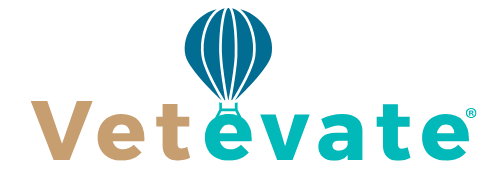To successfully hire veterinarians, employers must combine effective recruitment strategies with access to platforms that connect them directly with skilled professionals. In today’s competitive Animal Health industry, the demand for experienced and compassionate veterinarians continues to rise. Clinics, hospitals, and research facilities are seeking talent that not only meets their technical needs but also aligns with their mission and culture. However, traditional job sites often fail to deliver qualified candidates because they lack industry focus.
Specialized Veterinary job boards provide the solution by offering targeted exposure, efficient search tools, and a community of professionals dedicated to animal care. These platforms simplify the hiring process, saving time and resources while improving the quality of applicants. By understanding how to leverage a specialized Veterinary job board effectively, employers can identify, attract, and hire veterinarians who bring expertise, empathy, and long-term value to their organizations.
Understanding the Veterinary Hiring Landscape
The process to hire veterinarians has evolved as the Veterinary profession continues to grow and diversify. With more clinics, hospitals, and corporate practices opening across the country, competition for qualified talent has intensified. As a result, employers must adopt strategic approaches that go beyond posting general ads. Specialized Veterinary job boards have emerged as vital tools in addressing these recruitment challenges by connecting hiring managers directly with the right professionals.
The Veterinary field includes multiple specialties—ranging from small-animal practice and equine medicine to research and public health—each requiring specific qualifications. Employers often need candidates with specialized training, certifications, or experience in advanced procedures. General employment platforms rarely filter applicants according to these unique criteria, leading to mismatched candidates and extended hiring timelines. In contrast, specialized job boards focus exclusively on Animal Health careers, ensuring that every candidate profile aligns with Veterinary practice needs.
Moreover, the industry faces an ongoing shortage of veterinarians, especially in rural regions and specific specialties. Therefore, employers must differentiate themselves to attract top talent. Offering competitive compensation is important, but so are professional development opportunities and a supportive work environment. Many veterinarians seek employers who prioritize work-life balance, mentorship, and continuing education. By presenting these aspects clearly in listings, employers increase their appeal and likelihood of finding the ideal match.
Another important trend shaping the hiring landscape is digital engagement. Today’s job seekers expect modern recruitment methods, including streamlined applications and mobile accessibility. Specialized job boards cater to these expectations with user-friendly interfaces and advanced filters, making it easier for employers to reach motivated candidates. Consequently, businesses that adopt these platforms can hire veterinarians more efficiently while maintaining professionalism and precision in their recruitment efforts.
Using Specialized Job Boards to Hire Veterinarians
Specialized Veterinary job boards have revolutionized how employers hire veterinarians, offering a level of precision and relevance that general job sites cannot match. These platforms cater specifically to the Animal Health industry, hosting listings for positions that range from entry-level associate roles to leadership positions in Veterinary hospitals and research centers. Because every listing is tailored to Veterinary professionals, employers can focus on qualified applicants who possess the required credentials, reducing time wasted on unsuitable candidates.
One of the biggest advantages of specialized job boards is their ability to attract active job seekers within the Veterinary community. Professionals visiting these platforms are already engaged in the field, which increases the likelihood of successful placements. In addition, many boards allow employers to post detailed job descriptions, including responsibilities, qualifications, and benefits, which ensures transparency and alignment between both parties.
These job boards also provide advanced filtering tools that help employers target specific experience levels or geographic locations. For example, a clinic seeking a veterinarian with surgical expertise can narrow the search accordingly. Moreover, employers can view candidate resumes directly or receive alerts when new applicants match their posting criteria. This efficiency reduces hiring cycles and enhances decision-making.
Beyond functionality, specialized job boards also enhance employer branding. They offer options to create company profiles that highlight workplace culture, community involvement, and staff testimonials. This visibility is invaluable, as many candidates research employers before applying. A strong online presence builds credibility and fosters trust among applicants.
Finally, these platforms often include analytics features, allowing employers to measure engagement and track performance metrics for each listing. By reviewing data such as application rates or profile views, hiring managers can refine postings to attract stronger candidates. Consequently, businesses that use specialized job boards not only hire veterinarians more effectively but also strengthen their reputation as employers of choice within the Veterinary community.
Crafting Compelling Job Listings
Creating an effective job listing is essential for employers who want to hire veterinarians successfully. A well-written posting not only attracts attention but also sets expectations for the role and communicates organizational values. When crafting listings for a specialized Veterinary job board, clarity, authenticity, and detail are key.
The title should be specific enough to stand out. Rather than posting “Veterinarian Needed,” employers should include details like “Full-Time Small-Animal Veterinarian in Dallas” or “Equine Medicine Specialist for Mixed Practice.” This precision immediately informs job seekers about the nature and location of the role. The opening paragraph should then highlight what makes the opportunity unique, whether it’s advanced technology, mentorship programs, or a collaborative team environment.
Employers should also describe the work culture, mission, and client base. Candidates seeking long-term employment often look for alignment in values and professional philosophy. In addition, mentioning continuing education or career advancement opportunities can increase the appeal of the position. Since many veterinarians prioritize professional growth, these benefits can be decisive factors.
Furthermore, listings must balance professional detail with readability. Overly technical or lengthy descriptions may discourage applicants, while vague postings fail to generate interest. The ideal approach is concise, informative, and engaging. Including a call to action—such as “Apply today to join our dedicated team”—encourages prompt responses.
Finally, employers should ensure that their job postings are optimized for search visibility. Using relevant keywords, including location and specialization, improves ranking on job boards. This helps ensure that veterinarians searching for roles in their area of expertise can easily find the listing. When executed correctly, well-crafted postings become powerful tools that help employers connect with motivated candidates and hire veterinarians who fit their practice needs.
Evaluating and Engaging with Candidates
Once applications begin arriving, the next step in the process to hire veterinarians involves careful evaluation and communication. Specialized job boards simplify this phase by organizing applications and allowing employers to review resumes, cover letters, and certifications within one platform. However, successful hiring depends on more than qualifications—it requires assessing cultural fit, work ethic, and long-term compatibility.
Employers should start by identifying key competencies outlined in their job listing. Reviewing a candidate’s clinical experience, areas of specialization, and communication skills provides insight into their professional capabilities. Moreover, examining how candidates describe their previous roles can reveal their approach to teamwork and client relations.
Timely communication is equally important. Responding promptly to strong applicants demonstrates respect and professionalism, which reflects positively on the organization. Many specialized job boards offer messaging tools that facilitate direct interaction, enabling employers to schedule interviews quickly and efficiently.
During interviews, employers should explore both technical and behavioral aspects of the role. Asking about problem-solving in challenging cases or experiences managing client expectations helps assess adaptability and empathy—two essential qualities in Veterinary medicine. Furthermore, transparency about workload, expectations, and support systems ensures mutual understanding and reduces turnover risk.
Finally, maintaining professionalism throughout the recruitment process strengthens the employer’s reputation. Even candidates who are not selected may share their experience within the Veterinary community, influencing future applicants. Therefore, employers who treat every applicant with respect and communicate clearly are more likely to attract top talent over time. By combining efficient technology with personal engagement, organizations can confidently hire veterinarians who will thrive within their teams.
Hire Veterinarians with Long-Term Success
Recruitment does not end once employers hire veterinarians—it marks the beginning of a long-term relationship built on trust, communication, and mutual growth. Retaining top talent requires ongoing effort to create a positive work environment where veterinarians feel valued and supported.
Employers should prioritize mentorship and professional development opportunities. Many veterinarians, especially recent graduates, seek guidance from experienced peers. Providing structured training programs fosters confidence and loyalty. Moreover, clinics that invest in staff growth often see higher retention rates and better patient outcomes.
Work-life balance is another critical factor. The Veterinary profession can be demanding, so offering flexible schedules, mental health resources, or team wellness initiatives can make a significant difference. In addition, recognizing employee achievements through regular feedback or awards programs promotes engagement and morale.
Furthermore, maintaining communication beyond onboarding helps strengthen workplace culture. Regular check-ins, performance reviews, and open feedback channels allow employees to express concerns and feel heard. As a result, veterinarians are more likely to remain committed to the organization long-term.
Finally, employers should continue using specialized job boards to stay informed about industry trends, salary benchmarks, and evolving candidate expectations. These insights enable proactive adjustments to recruitment and retention strategies. By combining a supportive workplace with ongoing engagement, organizations can not only hire veterinarians successfully but also cultivate teams that drive sustained excellence in animal care and client satisfaction.




